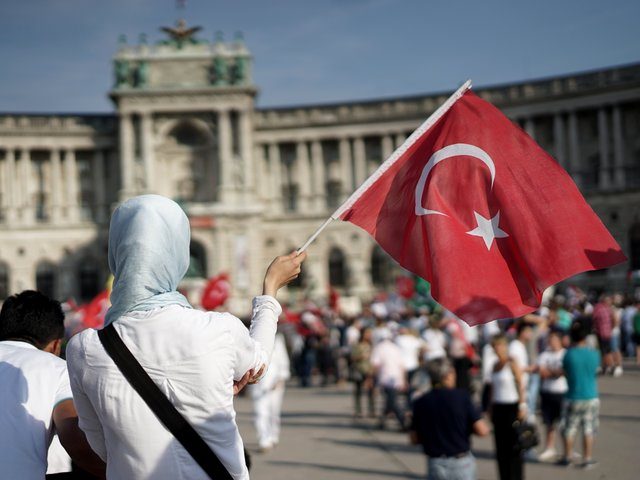Integration Minister Susanne Raab has rejected the idea of migrant enclaves in Austria, saying she would not support a Chinatown or a Little Italy developing in the country.
Minister Raab made her comments following an Austrian integration report that claims that around a quarter of the country’s population now come from migrant backgrounds. The report also revealed that since 2015, Austria has taken in more asylum seekers per capita than anywhere else in Europe.
“The refugee crisis in 2015 was a turning point that has changed Austria and integration in a lasting way,” Raab said at a press conference this week, Austrian tabloid Kronen Zeitung reports.
Raab noted that Austria has “achieved a lot in integration in the last ten years, but there is still a lot to be done”. She added: “We don’t want a Chinatown, we don’t want Little Italy.”
The report also noted that in the capital of Vienna, over a quarter of school students, 26.4 per cent, did not speak German as a first language, a figure up from 17.6 per cent just ten years ago.
Head of the Expert Council on Integration Katharina Pabel, who also took part in the press conference, acknowledged that two-thirds of children with migrant backgrounds failed to meet normal standards in reading and argued for a mandatory second year of kindergarten.
Raab announced that the government, led by Chancellor Sebastian Kurz, would focus on promoting migrant women as “integration engines” and help them find jobs. Currently, just one in ten migrant women has found work after being in Austria for four years.
Migrant parallel societies are an issue in many Western European countries like neighbouring Germany, where migrant-background no-go areas exist in cities like Duisberg and Cologne. In Germany, at least a quarter of the population now comes from migrant-backgrounds.
Sweden, which also took a high percentage of migrants relative to its population during the migrant crisis, has also seen issues with migrant-populated no-go areas. Most recently, the city of Gothenburg saw gangs impose curfews and roadblocks.
Austria’s rebuke of parallel societies follows the same stance as their neighbour to the east, Hungary. Under the government Prime Minister Viktor Orbán, who has long argued against mass migration, Foreign Minister Péter Szijjártó said last year that “parallel societies represent a huge security risk a huge security threat”.
“Look at the western part of Europe: in the last four years there were more than 30 major terrorist attacks committed by persons with a migratory background; more than 300 people were killed and around 1,400 injured,” he said.

COMMENTS
Please let us know if you're having issues with commenting.